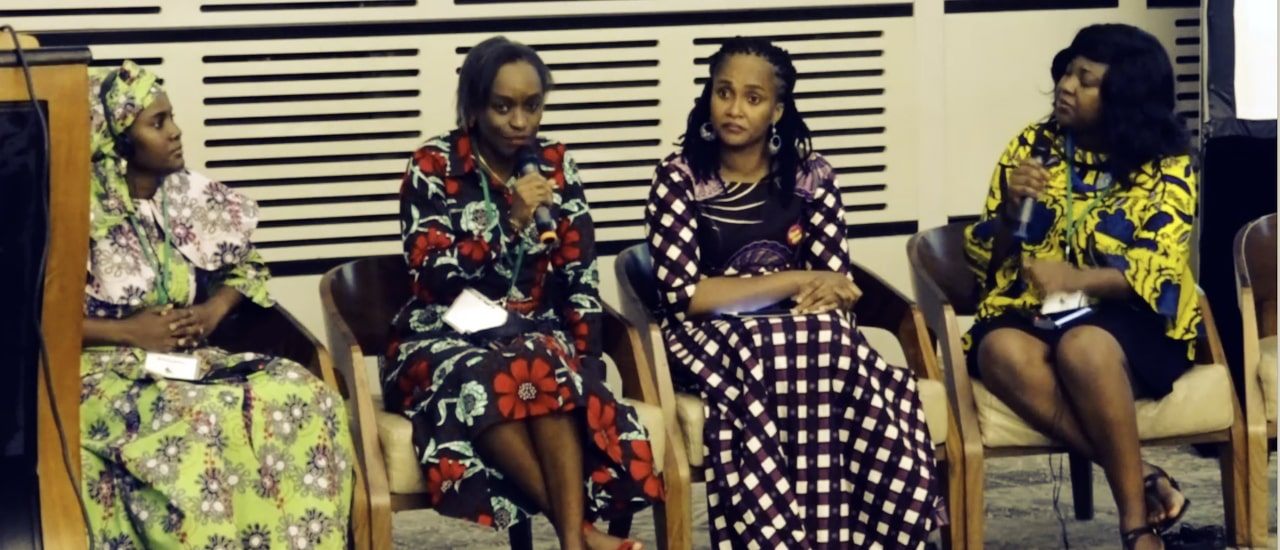October 9-11, 2018 will remain etched in the memories of the more than 250 girls and women in technology who converged in Accra, Ghana to participate in the second Africa Summit on Girls and Women in Technology. I was privileged to participate in this summit as well – together with seven other women in technology from my community in Ghana.
Highlights
The delegates were invited to provide their input into discussions on ongoing key policy processes in the continent and across the globe on broadband Internet access, sustainable development, and women’s empowerment.
The Deputy Minister of Communication from Ghana, Vincent Sowah Odotei, made the opening address, where he detailed Ghana’s achievements and plans to digitize Ghana and to support women to participate as users and producers of technology.
The program was planned such that the morning to lunchtime sessions were interactive keynote panels and “fireside chats,” touching on the following themes: Leadership in Technology Policy; Policy Engagement: The What, Why, and How; Women Advancing Science, Technology, Engineering, Arts, Mathematics and Design (STEAMD); Institutional Support for Women in Tech; and other topics.
The workshops were: Community Networks, Wikipedia Edit-a-thon, Enhancing Digital Security and Advocacy, and Mobilizing for Impact in the Digital Age.
The community networks workshop created needed awareness on how disadvantaged communities could design, develop, and maintain their own telecommunications infrastructure to connect them to the digital society. Some participants also shared how the digital security workshop had impacted their online personal security practices. The summit organizers encouraged all the participants to add their profiles on the Summit Wiki as this would enable the participants to collaborate later.
There were also lightning presentations just before the end of days one and two, including one on “Get to Know TechWomen Africa Partners.”
My Takeaways:
- The biggest challenge faced by initiatives that promote women in technology is financial – resources to enable them to facilitate mentoring and entrepreneurship skills for girls and women. There is a need to address the pipeline issues for girls in technology and to support them to be part of the economic transformation, through women and girls establishing technology-based businesses.
- The biggest value of the TechWomen Africa Summit is that it creates a platform for the different and numerous initiatives for girls and women in technology to share, collaborate, and know about each other. The platform does not duplicate what the various initiatives do but ensures we work together and learn from each other.
- As communities we must redefine what a woman in technology looks like – by challenging existing narratives and stereotypes. Technology has relevance across all disciplines. As educators we must show young women and men how technology can be used as a tool to solve problems.
- Community networks, communications infrastructure deployed and operated by citizens to meet their own communication needs, are being increasingly proposed as a solution to connect the unconnected. They are run, managed, and developed at the local level, offering the potential for socioeconomic development and empowerment. Women and girls stand to benefit as users and champions of community networks for the benefit of disadvantaged communities. These disadvantaged communities are usually characterized by a majority population of women and children whose lives could be transformed through the availability of access to the digital world. The Community Networks Workshop participants were left inspired to learn more and to explore the needs of their communities in relation to the possibility of implementing community networks.
- Women and girls were encouraged to become producers of technology and not just consumers. Women bring unique value when they become part of technology production teams – whether it is in software design, network design, hardware development, or other technological/non-technological solutions.
During the event, there were many tweets generated using the Summit hashtags @webfoundation and @A4A_Internet. On day one, the Summit hashtag #TechWomenAfrica was trending in Africa.
In my view this summit was able to achieve its objectives. It connected women’s rights advocates and policymakers with Internet rights advocates, broadband policy leaders, and leading and aspiring women technologists and innovators in Africa. The Summit created a vibrant platform and presented a landscape of issues on women’s rights and empowerment on and through the web. I personally look forward to the 3rd Summit on Women and Girls in Technology. I am grateful to the World Wide Web Foundation, the Internet Society, and the Association for Progressive Communications for facilitating the participation of me and my community.
Want to help close the digital gender gap? Join SIG Women!
